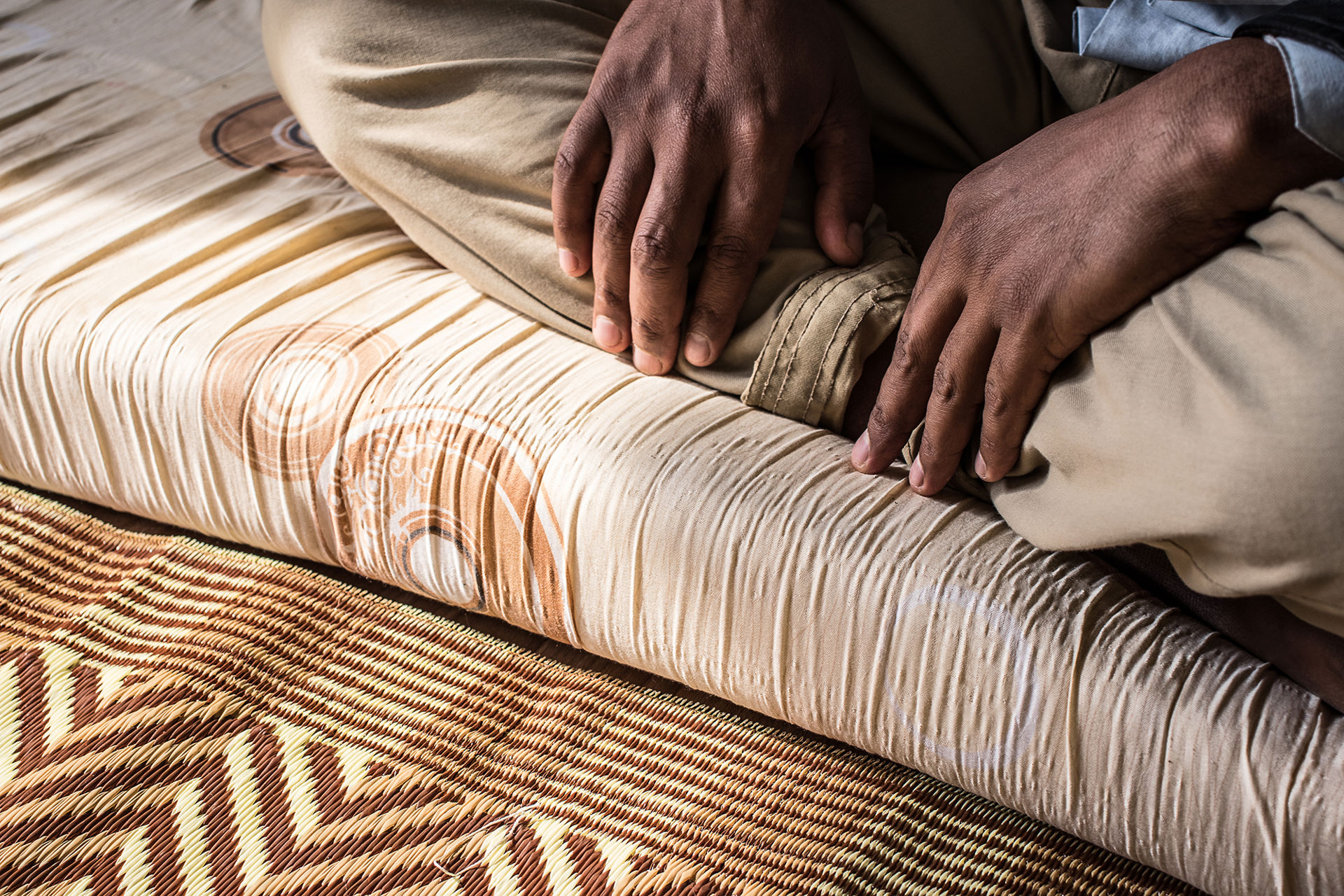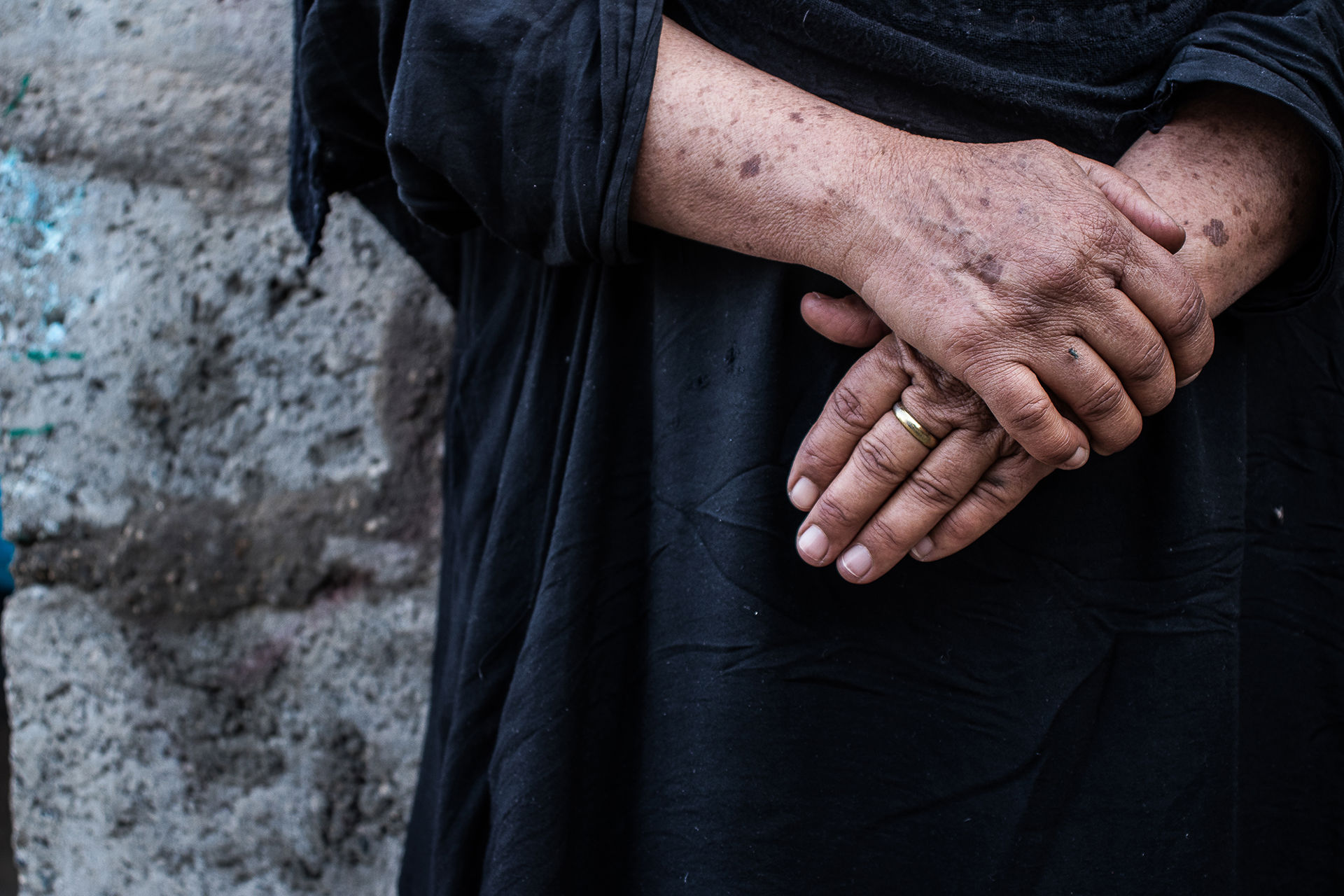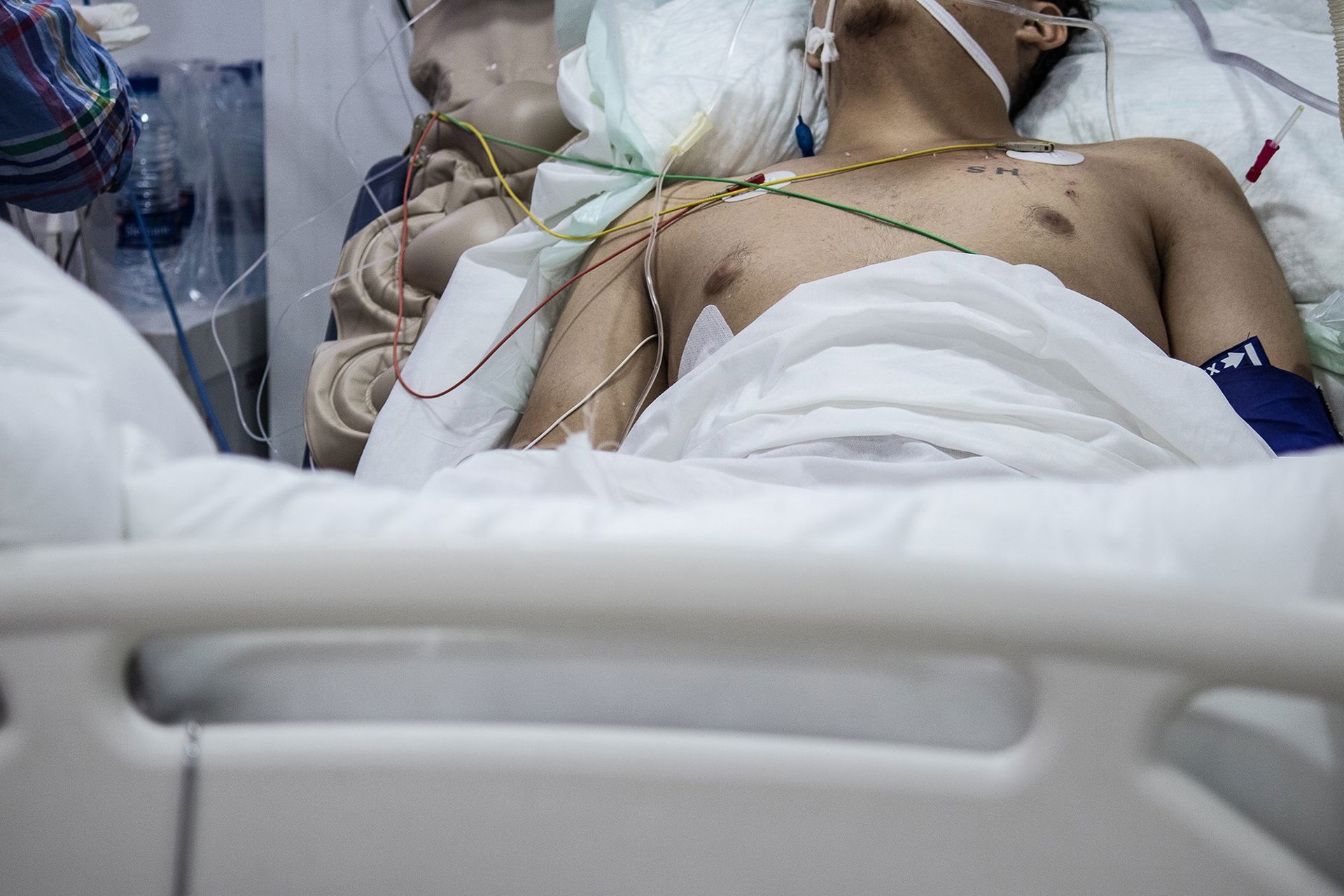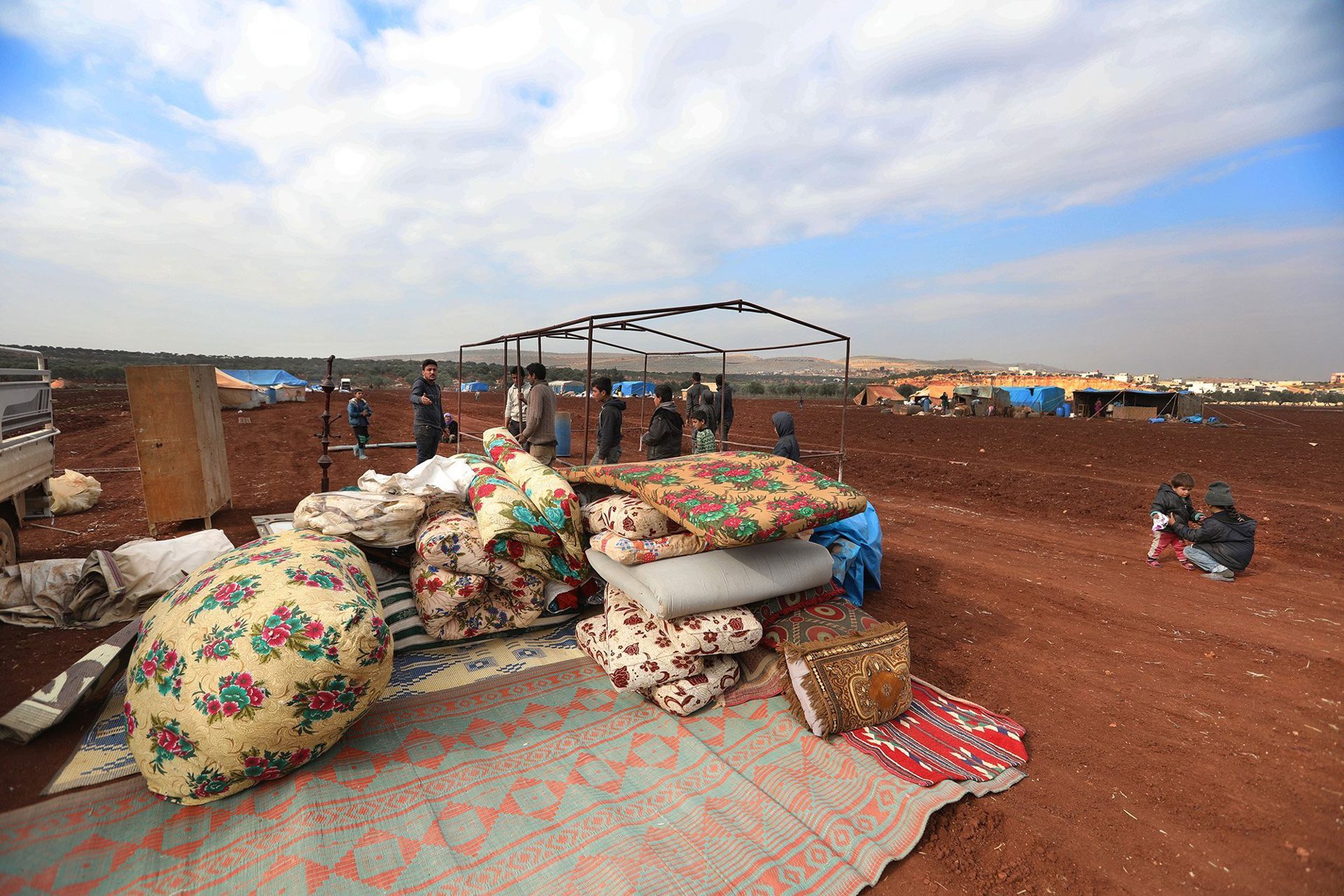
©MSF/Sacha Myers
“I overthink things, become anxious and I can’t sleep.”
Thirty-five-year-old Amir* has spent three years living in a camp for internally displaced people near the city of Sulaymaniyah in northern Iraq. Amir and his family fled their home in Salaheddin when the Islamic State group surrounded their town and cut off their food supplies. He suffers from a long history of anxiety and insomnia, and is receiving support from an Médecins Sans Frontières / Doctors Without Borders (MSF) psychologist in the camp where he lives.
My name is Amir* and I’m 35 years old. I’m from Salaheddin. I have nine children aged three to 15 years old.
We left our homes and came here because of IS (Islamic State group). IS entered our town and surrounded us so we couldn't receive food. Our situation became very bad.
I had lived all my life in Salaheddin. We were farmers and we had animals and our children used to go to school. Our life was stable and we were happy until IS came. Then there was no security.
We travelled from place to place until we arrived in Sulaymaniyah. Thanks God we became comfortable here and it is a good situation. Also, many organizations have visited us.
We’ve been in the camp for three years. I was 32 years old when we arrived.
I am a construction worker now and I work outside the camp. We live in a tent. The only problem is the economic situation. Sometimes we don't have enough food. Some days there is no work in construction. But security is fine here and we found safety. Our children go to school here, thankfully.
I found out about MSF when I read about it and some of MSF employees visited the tents in the camp. They helped us in a good way.
I overthink things, become anxious and I can’t sleep. I stay awake the whole night. I stay sitting in one place until the morning. As a result, I get sick. In the past, I had pain in my stomach and chest. I visited doctors and they weren't helpful. But when I visited mental health doctors it was very useful for me.
Right now, I visit MSF and it is very helpful for me. Thank you to [the MSF psych ologist]. He gave me instructions for activities to do and they really helped. He encouraged me to make sure I leave the tent each day and to make social visits with people I know, to play sport and to avoid staying alone at home. He also recommends for me to keep busy and not to sit at home.
Right now, I don't know what will happen in the future. I just want to go back home and have a stable life again. But our house was destroyed.
People are returning home slowly but people who returned don’t feel safe, yet. During IS there were risks and I'm still not sure about the safety of our hometown.
*Name changed to protect his privacy.
------------------------------

©MSF/Sacha Myers
“No one can say we are happy because we're not living amongst the trees we planted and the bees we raised.”
Nawar* lives in a camp for internally displaced people near the city of Sulaymaniyah in northern Iraq. Her face lights up when she describes the beauty of her home, but the light soon fades as she remembers what happened to her family. Nawar has been in the camp for four years. She received support from a Médecins Sans Frontières / Doctors Without Borders (MSF) psychologist to recover from depression. This is her story:
My name is Nawar and I'm 54 years old. My son, his wife and three children live here. And my other son and his wife and their five children. And my third son is here as well.
There was conflict near our home between the Iraqi army and IS (Islamic State) and we were afraid. IS didn't allow us to sleep because they were shooting all night.
In the conflict, we lost everything. Our houses, everything. Before IS, we lived in heaven we had a wonderful life. We never even got sick. Then we became displaced people and left our home. It’s been four years since we left.
While we’ve been in the camp, we haven't been hungry. All the organisations visit us and help us. But we became depressed here because we lost everything. We used to have farms, cars, houses. But they were taken from us. They entered our house and took everything and then they destroyed it as well.
It was like heaven, it was such a beautiful place. But eventually we were scared and we ran away. When we left our home, it was humiliating for us. We left in boats and some children fell in the water and died. The journey took us five days without eating food.
We received a warm welcome in the camp and we are comfortable. But no one can say we are happy because we're not living amongst the trees we planted and the bees we raised.
I was depressed and sad because I missed my relatives, especially my cousins. Three of my cousins were killed, one of them was a judge. He lived in Erbil and later he decided to come back home with his family. An armed group caught him and they killed all three of them. That's why I was depressed and sad.
I asked people about MSF and they told me where I could find them. I visited MSF and they gave me an appointment. I visited several times a week and I explained to the psychologist about the problems I suffered from. I said I was depressed here and found it difficult to breath. They recommended for me to visit my neighbours and to get out of the house. I recovered from my breathing problems. I also suffered from bad dreams and the psychologist gave me activities to help.
*Name changed to protect her privacy.
--------------------------

©MSF/Sacha Myers
“I want to tell my son’s story so other young people don't end up like him.”
Shala lives with her family in Sulaymaniyah, northern Iraq. Although the recent conflict is far from their doorstep, the health system in the area has struggled to maintain quality care in the face of economic downturn and the influx of more than 1 million internally displaced people. Shala says healthcare in Iraq is very poor but she is very happy with the care her son has received at the Sulaymaniyah Emergency Hospital where Médecins Sans Frontières / Doctors Without Borders (MSF) has trained staff and reconstructed the Intensive Care Unit and the Emergency Room.
My name is Shala. I was born in Sulaymaniyah and I’m 53 years old. I am a teacher. I have been teaching for 27 years. I teach history for secondary school students. I studied at Mosul University and I was very sad when I heard about what happened there.
I have two sons. They are 16 and 17. My eldest son is called Armar. Both my sons are still studying. Armar is studying to be a mechanic. Because of the economy, I can no longer support my sons so they want to go out and work as quickly as possible.
I’m very sad and disappointed about what happened to my son Armar. He has bleeding in the brain and his lung is also damaged. The doctors removed his chest tube yesterday because he is improving. He’s been in the hospital for four nights.
I want to tell my son’s story so other young people don't end up like him and so it can become a lesson for others.
Normally, for young men in Iraq, they want to drive a car and drive very fast, which is illegal. Armar is only 17 so he doesn’t have his licence. But he took my car without me knowing and he drove it very fast with his friend. I’m sure they thought they would just have a good time. But they drove very fast and hit a light pole in the street. His friend died and now my son is in a coma. I am so sad for both of them. My son’s friend died in my car and I find this very sad.
From what I have seen, there is a very weak health system and service in Iraq. For example, my sister had a caesarean section at a hospital in Kirkuk and I saw that it was a very bad system. The room was dirty, it wasn’t clean. It was not good healthcare.
I am surprised to see these services in this building. I am surprised because I didn't expect that it would be so clean with good staff. The humanity and the education level of the staff is very good. They come at the right time to give the medication without delays. And when they bring the medical equipment, they bring it over and open it right in front of our eyes and discard it in front of our eyes. I haven’t seen this done before in any other place.


